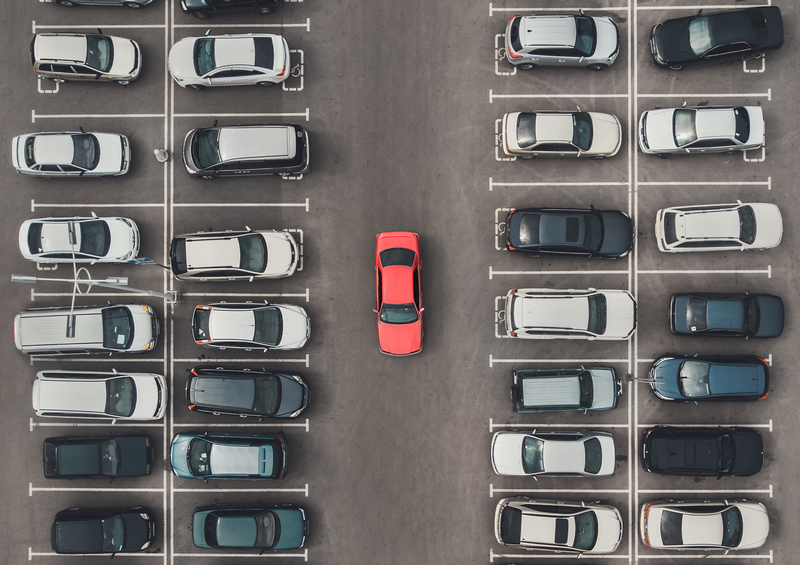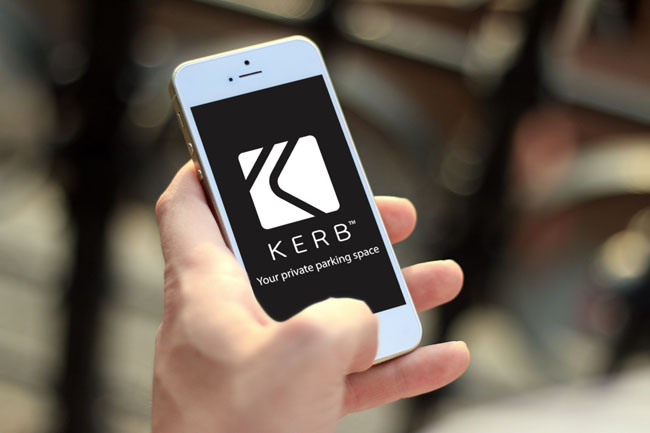
Picture the scene: you’re about to board your
At least one in 10 passengers struggle to get the electronic reader to work properly, so need to press the green ‘Help’ button, which takes them through to a call centre. Meanwhile, the queue of anxious travellers becomes more restless, as thoughts of missed meetings and disrupted schedules sink in. Finally inside the plane, you arrive at Seat 17C only to find that someone is sitting in it. An argument ensues, the passenger refuses to budge, and you are forced to wait till everyone has boarded before you finally locate a vacant middle seat at the back of the plane. On disembarking, you are faced with the same gates, queues, misplaced boarding passes - and friction. Access-and-screening technology was meant to drive efficiencies and calm nerves; instead, it did the opposite.
Described above is the customer experience we endure when we enter a busy car park in most parts of the world. Parking tech, for all its promise, has failed. Most car park operators run their sites on razor-thin margins. Leases, car park equipment - and the software needed to power it - are not cheap. Nor are the customer support centres required to remotely open mis-firing gates, and to deal with lost tickets, lost cars and lost vehicle owners. For all the promise of cost-saving automation, and Austro-German hardware that replaces hapless humans, something in the world of parking tech has gone horribly wrong.
User experience vital for parking operators
A mere decade ago, getting from A to B was invariably a choice between walking, driving or taking a taxi. The latter was extravagant, but required more friction and a more negative customer experience than tens of millions of people would ever accept today. You had to call or hail or wait in (an often inebriated) line for your taxi. Passengers had no idea who the driver was and he - it was always a ‘he’ - didn’t know who you were either. Data was non-existent, and the whole model relied upon the passenger being willing to take a leap of faith in the driver’s encyclopedic knowledge of the city’s road network. Paying for a taxi ride engendered a paper voucher, cash or a credit card, illegal parking, and a trip receipt delivered on a slither of dead tree. Then Uber came along, and most of the friction went away. Fewer steps, real-time data, a pleasant all-round experience, and a personal touch.
The commercial parking industry is in a very similar place to where the taxi industry was a decade ago: last-century mindset, low tech, lots of friction and a lack of data on who is in the vehicle. A handful of equipment manufacturers dominate the technology side of car parks, and nobody – be that the car park operators, the attendants, or the frustrated drivers - ever said they had an enjoyable experience in a car park. From Manchester to Manhattan, and from Berlin to Beijing, parking is a ‘grudge purchase’.
So what does the parking experience of tomorrow look like? Answer: probably very different from that of today.
Expecting better
In this always-on world of information-overload and inauthenticity, humans are craving more meaningful experiences. Hotel rooms rarely deliver that, but staying in an Airbnb invariably does. WeWork’s co-working spaces provide an experience which many workers feel is more enriching than a typical office environment. A candle-lit restaurant attracts more customers than its brightly lit equivalent. Businesses which neglect this personal touch do so at their peril. And almost every car park is blind to the threat of a disruptive model which raises the bar on the parking experience – even slightly.
The mere presence of a physical barrier screams out: ‘We don’t trust you!’ And if you don’t trust me, then there’s little chance that I’ll trust - or respect - you. There’s a reason why most hotel guests check out of their room with the bed unmade, the bath towels strewn across the floor and last night’s half-eaten room service on the table. And it has something to do with the scrutiny and credit card deposits and ID checks and the total lack of respect shown to paying customers by the hotel’s check-in procedures.
The same goes for parking. You put a gate in front of me? My guard is already up. You charge me the maximum daily rate because I misplaced my ticket? You just ruined my day. And you expect me to endure your friction-full check-in and check-out procedures, in what is frankly a dirty and unpleasant car park? I’ll pay zero respect to the environment in which you’re requiring me to park.

Pocket answer
Around the world, car parks force this type of experience down their loyal customers’ throats – day in, day out. And ‘parking tech’ is at the heart of the problem. Ticket machines were installed to create efficiencies, but they led to the opposite. Boom gates were intended to reassure, but they led to customer stress. Green-and-red availability sensors were always about diffusing competition among parkers, but they ended up creating it. Even licence plate recognition (LPR) cameras engender heart palpitations for the one-in-ten parkers whose dirty, wet or obscured number plates fail the recognition test.
Technology has a role to play in improving your parking experience, but it’s more likely the smartphone technology in your pocket than the ticket machines, gates and payment booths that most car park operators are so invested in. If the process of getting from A to B in a car for hire can be ‘app-ified’, then why can’t booking and parking in Space A or Space B? If digital entry passes can replace machine-issued paper tickets, and if payment can happen seamlessly based on triggering a timer on entry and exit, they why the need for expensive and inefficient equipment?
Technology should enhance the customer experience, by removing steps. Today’s parking tech detracts from the customer experience, by adding steps. And removing steps is what Uber and its copycats did so well. No calls, no queues, no cash, no receipts.
It worked, because peer pressure (and countless anthropological studies) suggested it would, and the last-century taxi industry began its inexorable descent into redundancy. But core to the success of Uber and Airbnb and other such platform services was one simple truth: they delivered a more pleasant experience to the customer. And that experience – particularly the personalised aspect of it – led to droves of passengers and guests abandoning a less meaningful experience in favour of a transcendent one.
Tipping point for parking operators
Parking technology is approaching a tipping point. The gates are starting to disappear (“We can no longer afford them, they jam, they require a customer-support function and, quite frankly, our parkers hate them,” said one car park operator recently). Municipal car parks are switching to pay-by-phone and pay-by-app systems, while even some of the biggest retail and hotel operators are replacing their million-dollar gates with thousand-dollar LPR cameras.
Meanwhile, parking apps are seeing rapid take-up by budget-conscious parkers and efficiency-focused car park managers who are willing to trade physical barriers-to-entry with digital data that can be used to personalise the parking experience.
Technology - done right - will transform tomorrow’s parking experience in ways that we never thought possible today. But if property managers and car park operators accept parking tech’s status quo, then their turn at the woodchopper’s shed may be a lot closer than they think. We’ve seen this movie before, and we know how it ends. Just ask the taxi operators…











